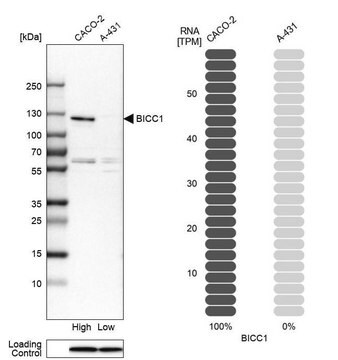추천 제품
생물학적 소스
synthetic
분석
≥98% (HPLC)
양식
liquid
농도
25 mg/mL in DMSO
색상
colorless to faint yellow
항생제 활성 스펙트럼
Gram-negative bacteria
Gram-positive bacteria
mycobacteria
동작 모드
DNA synthesis | interferes
enzyme | inhibits
저장 온도
−20°C
InChI
1S/C14H18N4O3/c1-19-10-5-8(6-11(20-2)12(10)21-3)4-9-7-17-14(16)18-13(9)15/h5-7H,4H2,1-3H3,(H4,15,16,17,18
InChI key
IEDVJHCEMCRBQM-UHFFFAOYSA-N
일반 설명
Trimethoprim, an aminopyrimidine antibiotic belonging to the methoxybenzenes group, exhibits activity against a broad spectrum of both gram-negative and gram-positive aerobic bacteria. As a synthetic derivative of pyrimidine, it plays a multifaceted role as an inhibitor, xenobiotic, and allergen, featuring antibacterial, diuretic, and antiprotozoal properties. Trimethoprim selectively targets dihydrofolate reductase (DHFR), diminishing the levels of tetrahydrofolate that supply one-carbon units crucial for biosynthesis processes, including nucleotides, proteins, and panthotenate, especially in prokaryotic microorganisms.
Additionally, it is frequently employed in combination with sulfamethoxazole (sc-208405) to effectively inhibit the growth of Staphylococcus aureus, functioning as a dihydrofolate reductase inhibitor. This versatile compound finds applications in metabolomics, cell biology, and biochemical research.
Additionally, it is frequently employed in combination with sulfamethoxazole (sc-208405) to effectively inhibit the growth of Staphylococcus aureus, functioning as a dihydrofolate reductase inhibitor. This versatile compound finds applications in metabolomics, cell biology, and biochemical research.
애플리케이션
Trimethoprim is used at a final concentration of ~4μg/mL for antibacterial activty.
생화학적/생리학적 작용
Mode of Action: Trimethoprim is an inhibitor of bacterial dihydrofolate reductase (DHFR), interfering with the conversion of dihydrofolate (DHF) to tetrahydrofolate (THF). THF is an essential precursor in the thymidine synthesis pathway, interference with this pathway inhibits bacterial DNA synthesis. Trimethoprim′s affinity for bacterial DHFR is several thousand times greater than its affinity for human DHFR.
Activity Spectrum: Effective against Gram-negative bacteria, Gram-positive bacteria, and mycobacteria
Some of the pathogens that trimethoprim can be effective against include:
Activity Spectrum: Effective against Gram-negative bacteria, Gram-positive bacteria, and mycobacteria
Some of the pathogens that trimethoprim can be effective against include:
- Escherichia coli (E. coli)
- Staphylococcus aureus (including methicillin-resistant Staphylococcus aureus or MRSA)
- Streptococcus pneumoniae
- Haemophilus influenzae
- Enterococcus faecalis
- Klebsiella species
- Proteus species
특징 및 장점
- High-quality antibiotic suitable for multiple research applications
- Ideal for Cell Biology, Metabolomics, and Biochemical research.
기타 정보
For additional information on our range of Biochemicals, please complete this form.
Storage Class Code
10 - Combustible liquids
WGK
WGK 2
Flash Point (°F)
188.6 °F
Flash Point (°C)
87 °C
가장 최신 버전 중 하나를 선택하세요:
시험 성적서(COA)
Lot/Batch Number
Stephen Hawser et al.
Biochemical pharmacology, 71(7), 941-948 (2005-12-20)
Although only a few DHFR inhibitors have progressed as antibiotics to the market there is much renewed interest in the discovery and development of new generation DHFR inhibitors as antibacterial agents. This article describes the success in exploiting DHFR as
A Binelli et al.
Comparative biochemistry and physiology. Toxicology & pharmacology : CBP, 150(3), 329-336 (2009-06-02)
A battery of eight biomarkers was applied in the freshwater mussel Dreissena polymorpha to evaluate potential sub-lethal effects of the antimicrobial trimethoprim (TMP, 5-[3,4,5-trimethoxybenzyl]pyrimidine-2,4-diamine). Mussels were exposed for 96 h to increasing concentrations (1, 3, 10 nM) of TMP in
R N Brogden et al.
Drugs, 23(6), 405-430 (1982-06-01)
Trimethoprim, which has been widely available for several years in combination with sulphamethoxazole as co-trimoxazole, is now available for use alone in the treatment of acute uncomplicated urinary tract infections. Trimethoprim, which is active against a wide range of Gram-positive
Mahamadou A Thera et al.
The Journal of infectious diseases, 192(10), 1823-1829 (2005-10-20)
Trimethoprim-sulfamethoxazole (TS) prophylaxis is recommended for persons living with human immunodeficiency virus infection and acquired immunodeficiency syndrome in Africa. TS and the antimalarial combination sulfadoxine-pyrimethamine (SP) share mechanisms of action and resistance patterns, and concerns about the impact of TS
The binding of trimethoprim to bacterial dihydrofolate reductase.
D J Baker et al.
FEBS letters, 126(1), 49-52 (1981-04-06)
문서
Cancer research innovations address the complexity of the disease, providing advanced technologies for varied applications.
Biofiles reviews innovative technologies for cancer research, reflecting the complexity of the disease.
자사의 과학자팀은 생명 과학, 재료 과학, 화학 합성, 크로마토그래피, 분석 및 기타 많은 영역을 포함한 모든 과학 분야에 경험이 있습니다..
고객지원팀으로 연락바랍니다.





